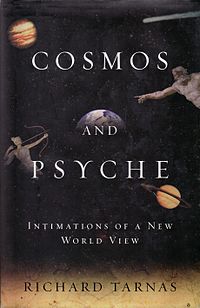
Astrology is a range of divinatory practices, recognized as pseudoscientific since the 18th century, that claim to discern information about human affairs and terrestrial events by studying the apparent positions of celestial objects. Different cultures have employed forms of astrology since at least the 2nd millennium BCE, these practices having originated in calendrical systems used to predict seasonal shifts and to interpret celestial cycles as signs of divine communications. Most, if not all, cultures have attached importance to what they observed in the sky, and some—such as the Hindus, Chinese, and the Maya—developed elaborate systems for predicting terrestrial events from celestial observations. Western astrology, one of the oldest astrological systems still in use, can trace its roots to 19th–17th century BCE Mesopotamia, from where it spread to Ancient Greece, Rome, the Islamic world, and eventually Central and Western Europe. Contemporary Western astrology is often associated with systems of horoscopes that purport to explain aspects of a person's personality and predict significant events in their lives based on the positions of celestial objects; the majority of professional astrologers rely on such systems.

The zodiac is a belt-shaped region of the sky that extends approximately 8° north or south of the ecliptic, the apparent path of the Sun across the celestial sphere over the course of the year. The paths of the Moon and visible planets are within the belt of the zodiac.

A horoscope is an astrological chart or diagram representing the positions of the Sun, Moon, planets, astrological aspects and sensitive angles at the time of an event, such as the moment of a person's birth. The word horoscope is derived from the Greek words ōra and scopos meaning "time" and "observer". It is used as a method of divination regarding events relating to the point in time it represents, and it forms the basis of the horoscopic traditions of astrology. Horoscope columns are often featured in print and online newspapers.

Western astrology is the system of astrology most popular in Western countries. Western astrology is historically based on Ptolemy's Tetrabiblos, which in turn was a continuation of Hellenistic and ultimately Babylonian traditions.

Electional astrology, also known as event astrology, is a branch found in most traditions of astrology according to which a practitioner decides the most appropriate time for an event based on the astrological auspiciousness of that time. It differs from horary astrology because, while horary astrologers seek to find the answer to a question based on the time the question was asked, electional astrologers seek to find a period of time which will result in the most preferable outcome for an event being planned.

Essential dignity, in astrology, refers to the relative strength or weakness of a planet or point's zodiac position by sign and degree, or its essence—what the 17th-century astrologer William Lilly called "the strength, fortitude or debility of the Planets [or] significators." In other words, essential dignity seeks to view the strengths of a planet or point as though it were isolated from other factors in the sky of the natal chart.

In astrology, the Arabian/Arabic parts or lots are constructed points based on mathematical calculations of three horoscopic entities such as planets or angles. The distance between two of the points is added to the position of the third to derive the location of the lot.

Astrological transits are one of the main means used in horoscopic astrology to forecast future trends and developments. As its name implies, astrological transits involve a method of interpreting the ongoing movement of the planets as they transit the horoscope. This is most often done for the birth or Natal Chart of a particular individual. Particular attention is paid to changes of sign, or house, and to the aspects or angles the transiting planets make with the natal chart.

Psychological astrology, or astropsychology, is the result of the cross-fertilisation of the fields of astrology with depth psychology, humanistic psychology and transpersonal psychology. There are several methods of analyzing the horoscope in the contemporary psychological astrology: the horoscope can be analysed through the archetypes within astrology or the analyses can be rooted in the psychological need and motivational theories. There might exist other astrological methods and approaches rooted in psychology. Astrologer and psychotherapist Glenn Perry characterises psychological astrology as "both a personality theory and a diagnostic tool".

Nicholas Campion is a British astrologer and historian of astrology and cultural astronomy. He is the author of a number of books and currently pursues an academic career.

Rob Brezsny is an American astrologer, author, and musician. His weekly horoscope column "Free Will Astrology" – formerly "Real Astrology" – has been published since 1980, and by 2010 was syndicated in around 120 periodicals.
Antero Alli is a professional astrologer who has authored books on experimental theatre, astrology and Timothy Leary's 8-circuit model of consciousness. He lives in Portland, Oregon, where he conducts workshops and stages theatrical productions, some of which have been released as films.

Alden Taylor (Tad) Mann, is an American astrologer, author, designer and artist who has written 18 books and is best known for his books and paintings on astrology and sacred architecture, sexuality and gardens.

Cosmos and Psyche: Intimations of a New World View is a 2006 book by cultural historian Richard Tarnas, in which the author proposes the existence of relationships between planetary transits and events in the lives of major historical figures, as well as cultural events.
Karmic astrology as practiced by some astrologers who believe in reincarnation though the concepted they can read the person's karma in a Natal chart by studying in particular Lunar nodes and retrograde planets. Other astrologers, such as Dane Rudhyar's protégé Alexander Ruperti, have lectured that everything in the Natal Chart is karmic.

Heliocentric astrology is a method of astrology based on birth charts cast using the heliocentric model of the Solar System, with the Sun at the center.

In astrology, planets have a meaning different from the astronomical understanding of what a planet is. Before the age of telescopes, the night sky was thought to consist of two very similar components: fixed stars, which remained motionless in relation to each other, and moving objects/"wandering stars", which moved relative to the fixed stars over the course of the year(s).

Astrology consists of a number of belief systems that hold that there is a relationship between astronomical phenomena and events or descriptions of personality in the human world. Astrology has been rejected by the scientific community as having no explanatory power for describing the universe. Scientific testing has found no evidence to support the premises or purported effects outlined in astrological traditions.






